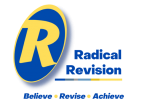What’s the difference between tutoring and Radical Revision?
Let’s be honest, RR is not to be confused with subject-specific tutoring. If that is what you need then, alas, you will need to look elsewhere. What we offer here at Radical Revision is something different but arguably more important.
Without doubt, tutoring is powerful and can sharpen performance – or increase confidence – within a specific subject. The best tutors can close learning gaps by targeting weaknesses, but advice tends to be highly specific meaning that it is not typically transferable to other subjects. Furthermore, without what we describe as the ‘secret skill-set’ of effective revision skills, the time and money invested in tutoring is unlikely to have the desired effect. This is because, by the time of the exams, learners are basically drowning in course content. Many are taking up to ten different exams and the sheer volume of this accumulated knowledge can be incredibly over-whelming. For exam success, learners need to know how to manage, and then utilise, this knowledge and this is where effective, Radical Revision comes in.
Whilst research shows that revision and planning can make up to 1.5 grades difference to final results, and 88% of pupils of who revise effectively meet or exceed their target grade, revision has something of an image problem and most teenagers are not wildly enthusiastic about it. So what is the answer?

Quick check: Ask your teenager how much of what I describe below has been taught to them before, either at school or by a tutor
Stage 1 Make it manageable
The first stage of effective revision is to make content more manageable and our mantra here is: Chunk/sequence/inter-leave. In the programme, we provide learners with a range of innovative templates to first audit and then ‘chunk’ their subjects prior to starting revision. This stage is very important and allows learners to begin to take control of the challenge ahead, in turn taking some of the stress and anxiety away.
Next, comes the process of sequencing the material to be revised. It is not enough to know that you intend to ‘revise history’ on Tuesday as there is probably a lot of history to revise. Our interleaving approach allows learners to identify the specific topics within each subject and then work with these on rotation.
Stage 2 Make it memorable
The second stage of the process is to build familiarity and fluency with this knowledge and this doesn’t happen by accident. Pupils need teaching exactly how to work with the information in specific ways in order to lock it in their long-term memory. The proven techniques in the Radical Revision programme are based on the latest research about how exactly to strengthen memory, for example, by including what Prof. Robert Bjork describes as ‘generation’ in the revision process.
Stage 3 Make it fun
We believe passionately that far from being a chore, revision can and should be fun. Engaged learners learn best and the programme draws on the psychology of motivation. The principles of gamification, collaboration and randomisation are use throughout to ensure that all learners are fully involved.
Stage 4 Make it count
Finally, once the revision is completed, comes the final challenge of applying all of the skills and the knowledge in the high stress setting of the exams. Here at Radical Revision, we are particularly proud of the sessions where we focus on examination skills and how to manage any anxiety caused by the exam itself.
Final check: If 1 or more of the highlighted concepts have not been taught, then the Radical Revision programme is ideal for your child.
